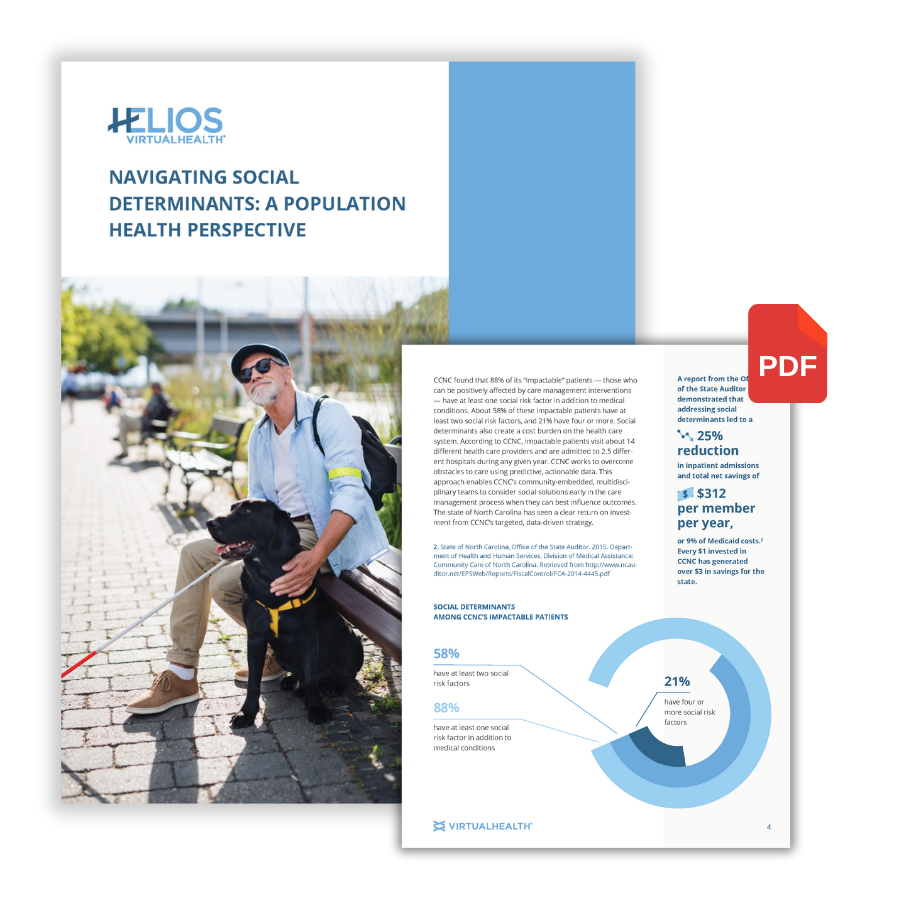Navigating Social Determinants: A Population Health Perspective
A look at how Lyft and Community Care of North Carolina drove change by implementing innovative approaches to proactive care

According to the Robert Wood Johnson Foundation, up to 80% of a patient’s health is determined by non-clinical factors. Organizations are expanding their scope beyond traditional, clinical approaches to healthcare and creating healthier populations by addressing social determinants of health. Using innovative solutions to tackle underlying causes in population health creates healthier patients and leads to cost savings for organizations.
Community Care of North Carolina (CCNC) is the largest and longest-running primary care medical home system in the United States. They have worked diligently to find appropriate, cost-effective methods for treating social determinants of health as key factors in a member’s chronic disease management. Lyft, the popular ride-sharing provider, recognized that 3.6 million Americans miss or delay medical appointments every year due to lacking appropriate transportation. This massive care gap can lead to worsening health conditions for patients and increased financial burdens for caregivers and providers.
Learn how the combined efforts of CCNC and Lyft have had a significant impact:
- 25% reduction in inpatient admissions
- Total net savings of $312 per member per year
- $3 in savings for the state for every $1 invested in CCNC
Get Your Free White Paper
Download the VirtualHealth white paper to learn how Lyft and Community Care of North Carolina are driving change by implementing innovative approaches to proactive care.
